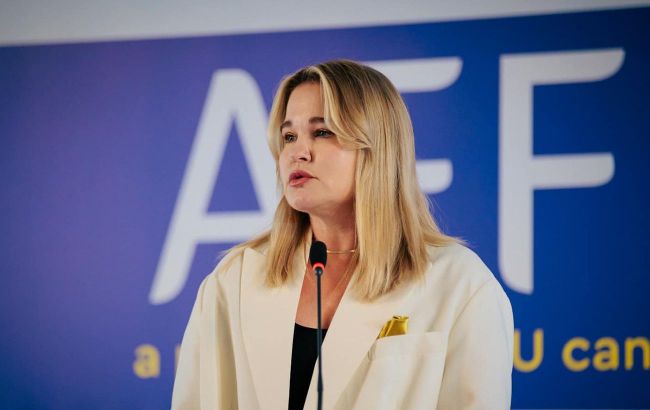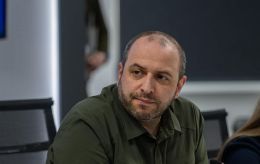Putin achieved opposite: After Russia’s attack on Poland, attention to Ukraine only increased
 Photo: Aliona Hetmanchuk (facebook.com/alyona.getmanchuk)
Photo: Aliona Hetmanchuk (facebook.com/alyona.getmanchuk)
After the recent attack by Russian drones on Poland, NATO countries have shown increased interest in Ukraine’s experience in countering unmanned aerial vehicles, states the Head of Ukraine’s Mission to NATO, Aliona Hetmanchuk.
According to her, Ukraine is currently receiving specific requests from its allies who seek to understand how exactly Ukraine’s drone defense system has evolved since the beginning of the full-scale invasion.
"If earlier we used to say that we are a 'contributor to European security,' now, when we say this after the attack on Poland, it is perceived differently,” Hetmanchuk said.
She emphasized that allied countries are interested not only in Ukraine’s current solutions but also in the process through which the defense system was built.
"If Putin wanted to divert attention away from Ukraine with his attacks, the opposite has happened — interest in our experience has only grown," the Ukrainian representative to NATO noted.
According to her, the number of countries seeking to adopt Ukraine’s experience in countering drones and to study the lessons learned during the war is now increasing.
Drone attack on Poland
On the night of September 10, around 20 Russian unmanned aerial vehicles violated Poland’s airspace. Most of them entered from the territory of Belarus. Polish air-defense forces shot down four drones. Later, the debris of 16 UAVs was found in 11 populated areas of the country. One of the drones crashed on the territory of a military base.
According to media reports, some of the Russian drones may have been heading toward a NATO base located in Poland. Due to the incident, the North Atlantic Alliance activated Article 4 of its treaty for the first time in a long period — this allows member states to hold consultations in the North Atlantic Council and jointly assess the situation.
NATO Secretary General Mark Rutte called the Alliance’s response to the incident "very successful" and stressed that it demonstrated NATO’s readiness to defend every inch of its territory, including its airspace.
Already on September 13, NATO announced the launch of Operation Eastern Sentry, aimed at strengthening the defense of Europe’s eastern flank following the intrusion of Russian drones into Polish airspace.

